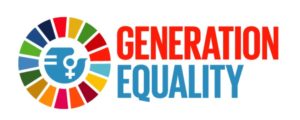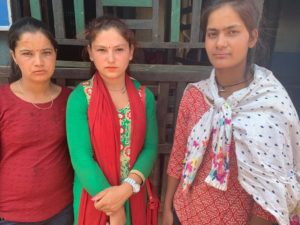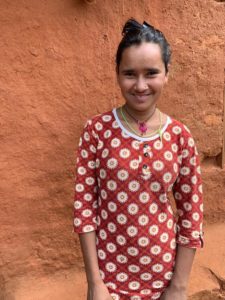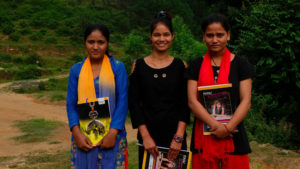Sponsoring girls, to facilitate scholarship and avoid early marriage in some areas in Nepal, is a new project of be artsy.
The United Nations has called for meetings of governments, women rights activists, and other agents, between May and July this year. Agents who promote a global campaign – Generation Equality, centring in Mexico City and Paris – in the 25th anniversary of the Declaration and platform for the action – Beijing 1995.

The declaration denounced gender inequality and proposed possible changes in women rights, and the “equality norm”. In an introduction to the campaign, UN Women explains: “Imagine a world where every person has got equal rights and opportunities. Women and girls are not afraid of walking home at night and men and boys are not trapped in oppressive masculinities. And where there is equality in political leadership, corporate boardrooms and factory floors. Women have a word in the decisions that affect their lives, their body, their policies and their environment, from villages to cities”.
This year 160 countries are expected – 189 states that entered into the declaration will adopt it by unanimity – to inform about the progress achieved, and that the United Nations Secretary-General makes a general evaluation. The new campaign talks “to facilitate synergies” – explains Katja Iversen, leader of the Women Deliver global group – “to advance effectively in matters such as abortion rights, reproductive health, or to put an end to violence. The potential for this change is huge” – she continues – “but there are already too many empty compromises, we must end up this year with a categorical, responsible and daring action”.
This declaration also included, amongst 12 key areas, decent work in any sector and equally paid, and to evaluate the impact of the environmental degradation in women, and their role in a sustainable development, specially in rural areas, where women and girls suffer also from a more difficult access to education. This right is challenged in some countries and, if not that, the difficulties to access education cause that, for example, many girls are forced to marry prematurely. The United Nations and other organizations do also point out the violation of basic rights, in the early or forced marriage of the girls.
Sponsorship project of girls and young women in Accham.
To this regard, the Edufem project of the association be artsy is based on the assumption that, for every year in school, the marriage age can be delayed in two years, in the remote rural areas of Nepal where the association works. Girls of 13 or 16 are married before having the chance of doing a more advanced grade – they think that their future implies working at their in-law’s house -, or else leave school earlier because they need to work in their parents fields. This project is parallel, and complementary, to the Rato Baltin Project that the NGO is carrying out since 2017, through which it denounces the extreme discrimination suffered by girls and women because of tribal origin traditions – Hindu ones, considering a woman impure when she is having her period -. And which also exposes them to being raped, or to die away from their own house when they are subject to the Chhaupadi. Via workshops and activities, the project promotes the education and the public debate about this sociocultural factor in the country.
With this new project, Clara García i Ortés, co-founder of be artsy, who has been nominated to the Robert Burns Humanitarian Award in its 2020 edition, personally began in 2018 to assume the sponsorship of two girls, Manisha N. and Tejana, and in the 2019 be artsy has counted with two sponsors helping two more girls, Sangita and Manicha B. To continue with the project, they are working to get sponsors for the schooling of Tulsi y Kamala. The feedback, the reaction, in terms of greater well-being and self-insurance, that these girls are giving, has encouraged the NGO to start this new project. Some volunteers have started to impart English lessons, online, to the girls, to help them communicate better with the people participating in the project, with support to pay the school and have the basic day to day help to facilitate them to continue going to the school.
Text by Josep Marín & Photos© by Clara García Ortés. Traslation by Tere Salinero.
For just €1.80 a day you can change the future of a girl and prevent her from being forced to marry at 14 years old!
There are several ways in which you can get involved and sponsor a girl in Achham:
Teaming Group: 1 euro a month – become part of the team and get your friends to help you sponsor her!
Regular donation: to https://donorbox.org/againts-chhaupadi
Become a member: https://beartsy.org/associate/
🙂 Thanks!



